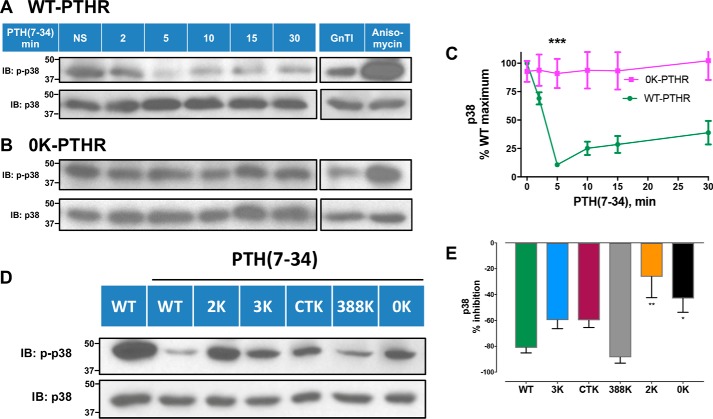Figure 8.
p38 signaling by WT-PTHR and 0K-PTHR. Differential effects of PTH(7–34) on p38 signaling in WT-PTHR (A and C) and 0K-PTHR (B and C). Cells were treated and processed as in Fig. 7. WT-PTHR and 0K-PTHR cells were treated with 25 μg/ml anisomycin for 5 min as positive controls. HEK-293S GnTI− cells transiently transfected with Myc-ubiquitin served as negative controls. Molecular weight standards are indicated at the left. The signal for phospho-p38 was normalized to that of total p38 at each time point. Results are the average of n = 3 for each time point and group (***, p < 0.001, two-way ANOVA). D, inhibition of p38 signaling by the indicated PTHR mutants upon PTH(7–34) stimulation for 5 min. HEK-293S GnTI− cells stably expressing WT-, 0K-, 2K-, 3K-, or CTK-PTHR (transient expression for 388K-PTHR) were transfected with Myc-ubiquitin. 48 h post-transfection, cells were treated and processed as in A and B. Unstimulated WT-PTHR cells served as a control. Molecular weights are indicated at the left. E, quantitative analysis of p38 signaling shown in D. Results represent the mean ± S.D. (error bars) of three independent experiments (*, p < 0.05; **, p < 0.01 versus WT-PTHR, two-way ANOVA).

